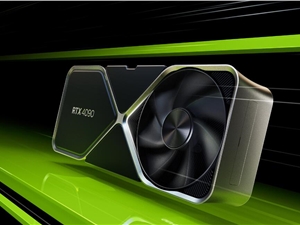Groq has successfully raised $640 million in its latest funding round, led by the world's largest asset management company, BlackRock Inc., and supported by tech giants Cisco and Samsung's investment arms. This round has catapulted Groq's valuation to $2.8 billion, highlighting investors' high recognition of its technology and future prospects. Groq's rise undoubtedly poses a strong challenge to Nvidia, which has long dominated the AI chip market.
Of particular interest to the industry is Groq's recent announcement that Yann LeCun, a globally renowned pioneer in artificial intelligence and Turing Award winner, will join the company as a technical advisor. LeCun's involvement is a significant boost for Groq in the competitive chip field and underscores the company's ambition in technological innovation.
However, challenging Nvidia is no easy feat. Analysts point out that while Groq shows great potential, it still needs to prove itself in terms of product maturity, ecosystem construction, and large-scale commercialization to truly shake Nvidia's market position.
Previously, Groq introduced a new feature that has attracted industry attention: users can directly use large language models (LLMs) on its website for nearly instant queries and various complex tasks.

It is reported that Groq quietly launched this service last week. According to real-time tests, Groq's response speed reached an astonishing 1,256.54 tokens per second, almost instant. This figure represents a significant improvement from the 800 tokens per second showcased by the company in April, demonstrating rapid technological advancement.
Groq's CEO, Jonathan Ross, said in an interview: "Our technology will revolutionize the way people use LLMs. Once users experience this unprecedented speed, they will realize the limitless possibilities of LLMs."
Currently, Groq's website defaults to using Meta's open-source Llama3-8b-8192 model, while also supporting more powerful models like Llama3-70b and parts of Google's Gemma and Mistral models. Ross revealed that the company will further expand the range of supported models to meet the needs of different users.
In practical experience, Groq not only impresses with its speed but also excels in the diversity and flexibility of its functions. Whether it's generating job descriptions, writing articles, or making instant edits, Groq can accomplish these tasks at an astonishing speed. Notably, Groq also supports voice input functionality, using OpenAI's latest Whisper Large V3 model for voice recognition and translation.
Industry experts point out that Groq's high-performance capabilities are largely due to its proprietary language processing unit (LPU). Compared to traditional GPUs, LPUs exhibit higher efficiency and lower energy consumption when handling LLM tasks. Groq has revealed that its technology consumes only one-tenth of the energy of GPUs under most workloads, posing a serious challenge to the current GPU-dominated AI computing landscape. Since the service's launch 16 weeks ago, Groq has attracted over 282,000 developers. The company has also provided a convenient migration path for applications originally developed on the OpenAI platform, further lowering the barriers for developers.
Given such impressive performance, the industry wonders if Groq can truly shake up the status quo of existing AI giants. Ross is confident in this regard. He boldly predicts that by next year, more than half of global inference computations will be conducted on Groq's chips.
However, some analysts remain cautious. They point out that while Groq shows great potential technically, it still faces many challenges in truly challenging established industry giants, including market recognition, ecosystem construction, and large-scale commercialization.
Regardless, Groq's emergence undoubtedly injects new vitality into the AI industry. At the upcoming VentureBeat2024 Transform conference, Ross will be the opening speaker, where he may reveal more about Groq's future plans.
As AI technology continues to advance rapidly, Groq's innovations bring new possibilities to the industry. It not only showcases the broad prospects of LLM applications but also points to new directions for the popularization and efficient deployment of AI. We have reason to expect that in the near future, AI technology will integrate into our daily lives and work at a faster pace, lower cost, and higher efficiency.










